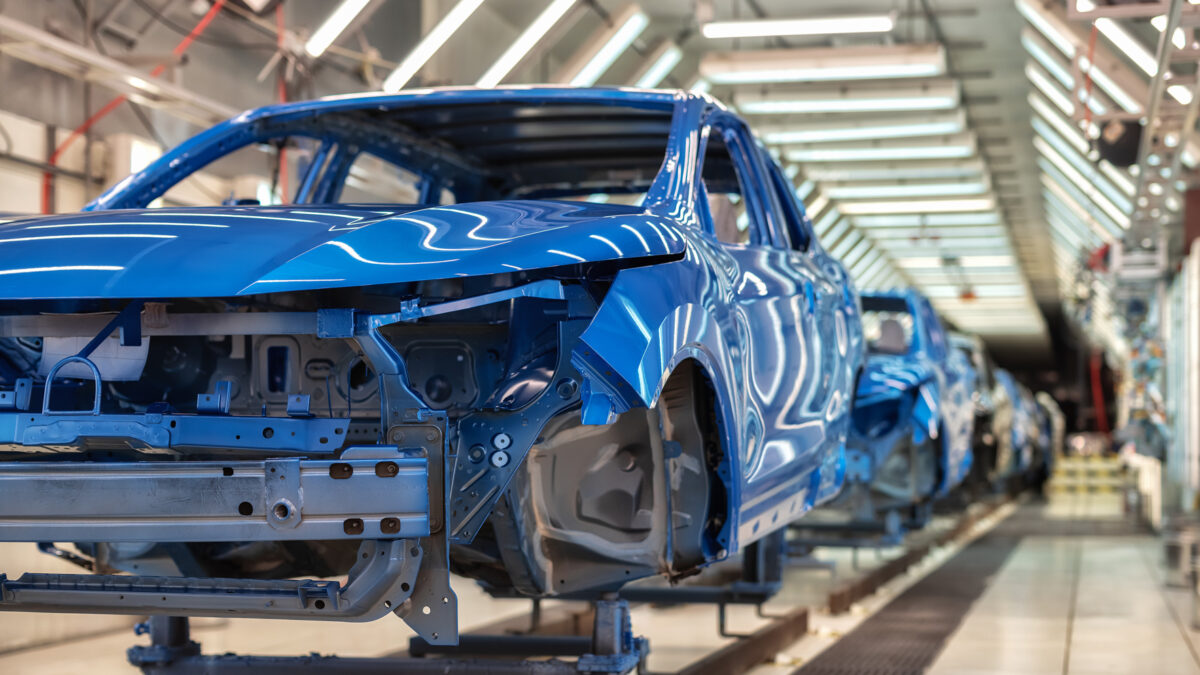The worldwide chip shortage is just one sign that automakers and semiconductor manufacturers need to collaborate at an entirely new level
This blog is co-authored by Salim Shaikh, Vice President – Industry Strategy, Blue Yonder, and Ehap Sabri, Managing Director, KPMG
For over a century, the global automotive industry has been focused around one central technology: the internal combustion engine. But now the digitalization of the modern car is revolutionizing the industry, with enormous repercussions for the end-to-end supply chain. Digital technologies today, by some accounts, make up at least 50% of a vehicle’s value.
As cars become more autonomous, more electric and more connected, their differentiating digital features increasingly depend on semiconductor manufacturers. From infotainment to steering, braking and navigation, chips underlie nearly all of the modern car’s functionality. In the future, KPMG projects that the fully autonomous car will likely have eight to 10 times as much semiconductor content as non-autonomous vehicles, thanks to 5G connectivity, LiDAR sensors and image-recognition technologies.
The well-documented chip shortage that’s currently holding up automotive production lines around the world has put a spotlight on how susceptible today’s supply chain is to interruption. Some experts estimate that the global auto industry will lose more than $60 billion in 2021 revenues due to this foundational demand-supply mismatch.
The market volatility following the COVID-19 pandemic has clearly demonstrated the need for both automakers and semiconductor manufacturers to adopt advanced supply chain technologies that increase their visibility, collaboration and responsiveness.
Racing Toward Supply Chain Transformation
In a recent Harvey Nash/ KPMG CIO Survey 2020 report across industries, almost half said the pandemic has permanently accelerated digital transformation and the adoption of emergent technologies within their organizations.
The good news is that, just as digitalization is revolutionizing the automobile, it is revolutionizing the supply chain. From artificial intelligence (AI) and advanced data science to predictive analytics, Blue Yonder’s digital solutions can accelerate supply chain transformation by helping both automotive and semiconductor manufacturers achieve these four key capabilities:
- End-to-end supply chain visibility and collaboration. The recent chip shortage was caused when COVID-19 began to shut down auto plants, and chips were diverted to fast-growing personal electronics applications instead. Blue Yonder’s LuminateTM Control Tower is built to scan the entire ecosystem to identify and respond to such events via AI-powered visibility and real-time responsiveness. When something goes wrong, the control tower weighs options and recommends the optimal network-wide outcome, based on cost, customer service levels, and revenue and margin. If the event is minor, such as a single, missed delivery, the response is typically automated.
Supply planning takes on a new level of speed and accuracy when it’s accomplished across all essential participants in the supply network. This means capacity collaboration, sharing market forecasts, operating data, logistics insights and other critical information via a shared platform of supply chain solutions. Automotive customers need to link their own complex supply chains to those of their key semiconductor manufacturers. Only by recognizing and responding to both upstream and downstream events can all partners optimize their financial and service results.
- Real-time demand planning. Automakers and their electronics suppliers need to utilize real-time data to sense demand shifts at the earliest possible opportunity and plan for all downstream impacts, across all organizations that participate in the global supply network. This data must be gathered in real time from a variety of third-party sources, ingested intelligently and analyzed at a granular level to determine the right response across multiple partners. Enabled by AI and advanced algorithms, today’s forecasting engines are up to the challenge.
- Scenario planning. When a larger disruption such as a plant shutdown occurs, also critical is the ability to quickly reconfigure global and regional supply chain flows, flexibly source components as needed, and continuously make trade-offs based on cost, service and risk analysis. Powered by AI, accurate scenario modeling enables all supply chain participants to understand the impact of decisions on service levels, cash flow, profit and loss, and the balance sheet.
Embracing the Challenges, and Opportunities, of Digitalization
Along with opportunities, the digitalization of the automotive industry has brought challenges — both for automakers and their suppliers. What’s happening today is similar to the complete revolutions that have already occurred in personal computing and mobile phones.
KPMG can help automotive companies assess their cultural and technical readiness to more fully integrate their product solutions and supply chains with the world’s automakers.
Blue Yonder’s solutions can help with the implementation and execution phases, by applying AI, data science and analytics along the entire supply network to maximize visibility and responsiveness across multiple organizations.
While the chip shortage of 2020 is having serious repercussions, it’s alerted both automotive and semiconductor companies that they need to accelerate and amplify their efforts to digitally transform their supply chains. They can’t afford to wait any longer.
Blue Yonder is the world leader in digital supply chain and omni-channel commerce fulfillment. Our intelligent, end-to-end platform enables retailers, manufacturers and logistics providers to seamlessly predict, pivot and fulfill customer demand. With Blue Yonder, you can make more automated, profitable business decisions that deliver greater growth and re-imagined customer experiences. Learn more at blueyonder.com.
Whatever your sector, more than 2,000 supply chain, strategy, and value chain management professionals from the KPMG network of member firms worldwide can help you address the issues of today from crisis response planning, to rapid diagnostic for supply and demand risks across your operation, to scenario analysis and contingency planning. KPMG’s professionals are skilled in all areas of supply chain operations from strategy and analytics, to supply chain risk, planning and execution, and logistics and distribution. KPMG also has the capabilities to help you integrate tax planning into your business operations to help minimize expenses and risk, enhance return on investment, and drive efficiencies across operations. Find out more here.

